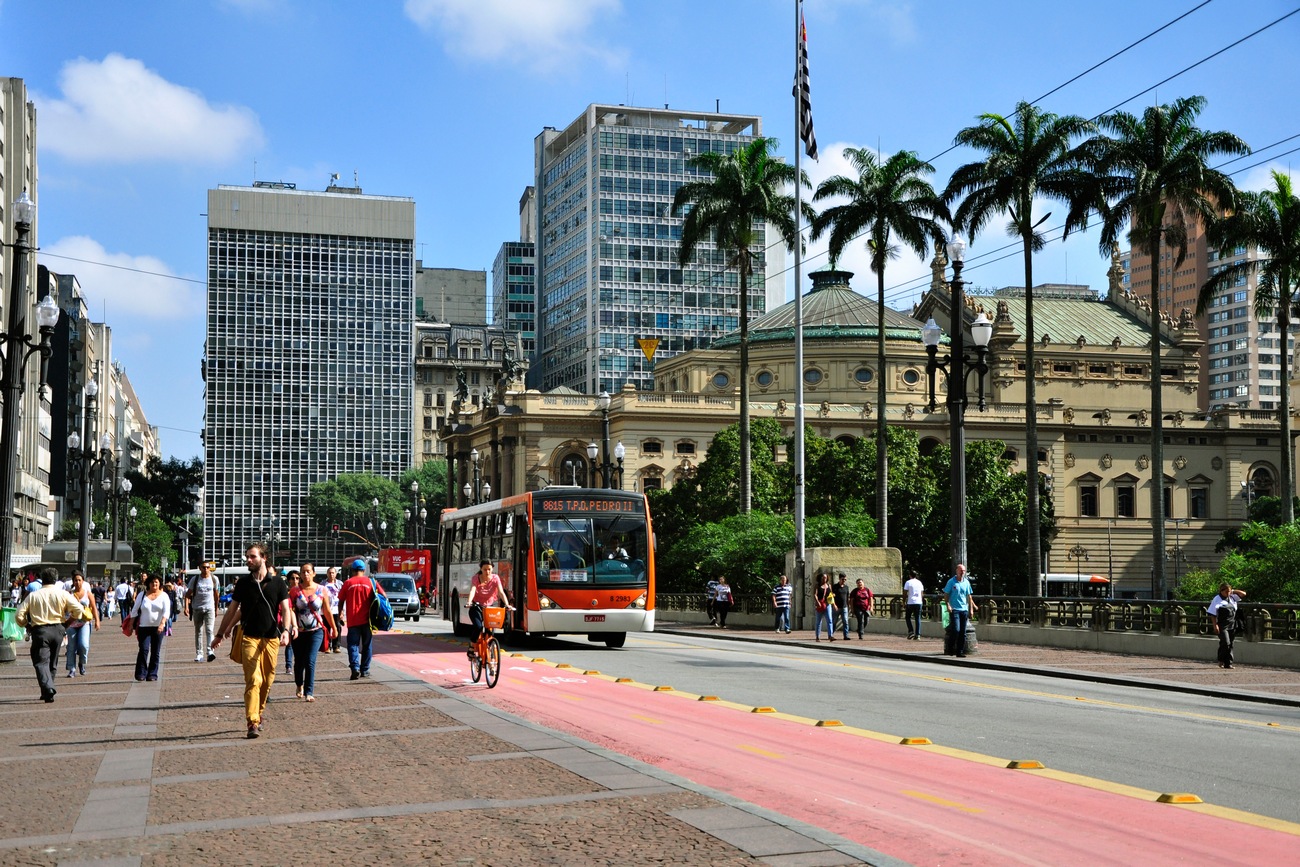Next Stop for Zero Emission Buses: Latin America

Subject
P4G Partnerships
Publication Date
2018-10-20
About
10/20/18
Contacts:
P4G: Frank Walter, frank.walter@p4gpartnerships.org, 01-202-271-7727
C40: Josh Harris, jharris@c40.org , +44 7739 021000
ICCT: Amy Smorodin, a.smorodin@theicct.org, 01-202-534-1613
NEXT STOP FOR ZERO EMISSION BUSES: LATIN AMERICA
New Partnership Aims to Mobilize Municipalities, Manufacturers and Financial Institutions
COPENHAGEN—20 October—A new partnership to speed the deployment of zero emission bus fleets in Latin American cities was awarded $900,000 in a global competition for innovative sustainability solutions announced today at the Copenhagen P4G Summit.
Led by C40 Cities (C40) and the International Council on Clean Transportation (ICCT), the Zero Emission Bus Rapid-deployment Accelerator (ZEBRA) will support all C40 cities and initially intends to work with Medellin, São Paulo and Mexico City in their efforts to plan, finance, and deploy electric bus fleets. Other partners include the World Resources Institute and Centro Mario Molina-Chile, who have been supporting Santiago’s current procurement program for electric buses, will also leverage lessons learned from this process as part of its contribution to this new partnership. The Inter-American Development Bank will also join as a partner.
Over the next two years, the ZEBRA partnership seeks to secure commitments from major bus and engine manufacturers to support the growth of electric buses in Latin America through collaboration with cities on vehicle specifications, charging strategies, pilot projects, financing and other steps necessary for fleet-wide deployment of zero emission buses. In addition, it will seek regional financial institutions to commit USD 1 billion in available financing to replace older diesel buses with electric bus purchases.
“This partnership promises to make the air cleaner for millions of people living and working in some Latin America’s largest cities, reduce greenhouse gas emissions contributing to global warming and provide a valuable roadmap for how cities globally can accelerate the deployment of zero emission buses in ways done in China and committed to in California,” said Ian de Cruz, global director of Partnering for Green Growth and the Global Goals 2030 (P4G), the initiative that is providing the funding and support to the ZEBRA partnership.
ZEBRA is one of six partnerships selected by P4G to receive scale-up funding and among 24 partnerships P4G is funding and/or facilitating in 2018 following a global competition that attracted 450 submissions from 80 countries.
Transportation is a predominant source of NOx emissions in Latin American cities, a major cause of air pollution, which contributes to premature deaths and illnesses such as asthma, especially in children. The transport sector also accounts for nearly a quarter of greenhouse gases globally.
“Medellin has set the goal of becoming the capital of electric mobility in Latin America," said Federico Gutiérrez, Mayor of Medellín. "We are convinced that joining the ZEBRA program will contribute greatly to making this dream come true and will help us build a city that guarantees well-being for its citizens. We are making ambitious efforts to promote sustainable means of transport and therefore, we are moving towards the replacement and purchase of electric buses for our BRT - Metroplús system and we have the firm intention that 100% of the new vehicles enrolled in the system will be electric."
To deliver on the highest goals of the Paris Agreement and keep global temperature rise within safe limits, requires bold and urgent action. For example, by 2030 every bus on the streets of the world’s biggest cities must be electric,” said Mark Watts, executive director C40 Cities. “This award from P4G and the ZEBRA partnership will help ensure that ambition becomes a reality in cities across Latin America.”
Global demand for electric buses has been growing steadily. Already 26 cities have committed to C40’s Green & Healthy Streets Declaration, committing to purchase only electric buses from 2025. There are more than 80,000 electric buses on the streets of these cities, demonstrating the huge potential market for manufacturers.
According to the ICCT, buses are just one percent of all vehicles on the road but 25 percent of emissions in the transport sector. “Few transit advocates realize more than 8 out of 10 new buses sold today do not meet world class vehicle emission standards,” said Drew Kodjak, executive director of ICCT. “New buses with dedicated electric drive engines not only deliver zero tailpipe emissions but emit dramatically lower carbon emissions per kilometer and, in most cases, can pay for themselves despite higher upfront cost."
About P4G
P4G – Partnering for Green Growth and the Global Goals 2030 – is a new initiative with the ambition of becoming the world’s leading forum for developing concrete public-private partnerships at scale to deliver on the SDGs and the Paris Climate Agreement. The government of Denmark is providing initial funding for P4G from 2018-2022. Besides the partner countries, non-profit organizations such as the Global Green Growth Institute, C40 Cities, World Economic Forum, and the World Resources Institute (which hosts the P4G Global Hub) are also P4G partners.
About C40
Around the world, C40 Cities connects 96 of the world’s greatest cities to take bold climate action, leading the way towards a healthier and more sustainable future. Representing 700+ million citizens and one quarter of the global economy, mayors of the C40 cities are committed to delivering on the most ambitious goals of the Paris Agreement at the local level, as well as to cleaning the air we breathe. The current chair of C40 is Mayor of Paris Anne Hidalgo; and three-term Mayor of New York City Michael R. Bloomberg serves as President of the Board. C40’s work is made possible by our three strategic funders: Bloomberg Philanthropies, Children’s Investment Fund Foundation (CIFF), and Realdania.
About ICCT
The International Council on Clean Transportation is an independent nonprofit organization founded to provide first-rate, unbiased research, and technical and scientific analysis to environmental regulators. Our mission is to improve the environmental performance and energy efficiency of road, marine, and air transportation, in order to benefit public health and mitigate climate change.
